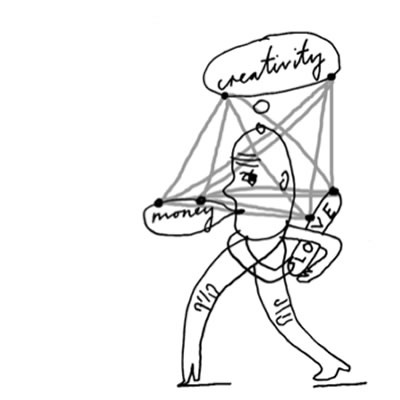First published on November 2011.
Louis from Lewisham is a cultural volunteer spending his summer energetically inspiring a group of children to follow his interest and engage meaningfully with the arts. He’s developing new skills as an advocate, promoter and mentor whilst also pursuing his own creativity. It’s the second year running he has chosen to devote time, energy and intellect to culture and he’s having an electrifying effect on a hard-to-reach audience who admire and follow his guidance. Where is this creative learning for life, money and love taking place? A cutting-edge gallery, community theatre workshop or street-wise dance studio? No, it’s the local library.
Louis Howell is a volunteer for our Summer Reading Challenge at Lewisham library. 97% of UK public libraries participate in this hugely successful annual reading development project. A simple idea that invites children to read six books – any books – over the holidays. In return they receive stickers, rewards and lashings of creative stimulation. It’s run every summer, focusing on attractively designed, child friendly themes. Teachers love it because it keeps reading levels up in the long break from school, and because children come back to school fired up about reading, and ready to learn.
So here we have public libraries leading one of the UK’s biggest cultural engagement projects. 760,000 four – twelve year olds take part, sensitively encouraged by staff and volunteers like Louis whose input illustrates a very current mixed economy model. Community involvement that adds capacity to, but doesn’t – and shouldn’t – replace a professionally run library service.
With a bunch of fellow social entrepreneurs, I set up The Reading Agency in 2002 to develop reading and readers. We work with libraries because they are democratic, socially equalising venues.
Libraries are the place where creativity and culture are accessible to all. They are performance spaces, galleries, and learning hubs. They can support creative industries, enterprise and innovation. They exploit digital technology and contemporary practice. Lots of this happens through their reading work.
Libraries are now part of the Arts Council of England’s concern. Yet libraries and reading are often missed out of the picture when talking about the arts. Weird, because reading is our biggest participative art form and just think about what happens when you read – you’re instantly plunged into a deep and intimate connection with the writer; your imagination fuses with theirs to create new worlds and understanding.
Libraries are the way society ensures we can all access the personal power that comes when you’re a reader. Reading isn’t just a nice thing. It’s essential to being part of society. An art form that needs to reach everyone. But it doesn’t – one in six adults struggle with low literacy skills and libraries are key to tackling this. Libraries are surely the ultimate community enabler, a potent symbol of collective power and civic pride? It would be hard to think of a more important part of our cultural fabric to an agenda that’s about community power and action.
We need library professionals with the expertise to provide informed support as people explore the world’s ideas. But volunteers like Louis, drawn in first as participants and then as leaders, can help shape important decisions, directions and activities, ensuring libraries stay relevant and understand their audiences.
The library as a hotbed of a creativity is a difficult concept for many cultural policy makers and managers. We can easily view theatres, galleries and concert halls as useful playmates for schools and universities even if they are still elitist institutions to many in society, despite thirty years of intense audience development initiatives.
The central geographical, cultural and social position of libraries enables them to attract the bored, the disenfranchised or those that conventional education fails. Yet their very accessibility with some groups of demographics perhaps renders them less attractive to others. The arts intelligentsia love literary stuff but how many of them (you) regularly access it from the library? Cruising our beautiful book-shops and websites, or meeting friends in a literary festival are, for many of us, a pleasurable past-time. Visiting a new town we might seek out the theatre or gallery but rarely a library.
Yet here is where the exciting, creative arts activities are conceived and nurtured.
One of the best ways to save libraries is to simply visit them and understand how their work around reading has changed in fifteen years. Celebrities are gracious with their heart- felt suppor t of libraries but up to date understanding of the changed activities and purpose is also essential. Somewhere along the line culture got captured by the visual and performing arts. Literature has struggled to get its voice heard. Libraries are leading the way for cultural engagement and opportunity. They deserve some of your attention.
Your library ticket works across the country. Try to use it if you care about reading, words and the voices of people like Louis.
Â
 Creativity Money Love: Learning for the 21st Century by Creative & Cultural Skills is licensed under a Creative Commons Attribution-NonCommercial-NoDerivs 3.0 Unported License.
Creativity Money Love: Learning for the 21st Century by Creative & Cultural Skills is licensed under a Creative Commons Attribution-NonCommercial-NoDerivs 3.0 Unported License.
Illustrations by Paul Davis - http://copyrightdavis.blogspot.com/


